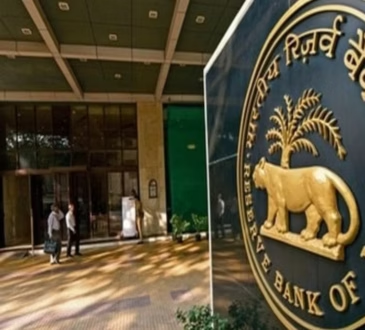Asia-Pacific markets climb as investors await details of U.S.-China trade talks – NBC Chicago
This is CNBC’s live blog covering Asia-Pacific markets.
Asia-Pacific markets climbed Tuesday as investors awaited further details on the U.S.-China trade talks, which were slated to continue for a second day.
Officials from both countries held trade talks in London on Monday, with U.S. Treasury Secretary Scott Bessent, Commerce Secretary Howard Lutnick and Trade Representative Jamieson Greer meeting with their Chinese counterparts led by Beijing’s Vice Premier He Lifeng.
Christian Floro, market strategist at Principal Asset Management foresees that the “market backdrop will remain uncertain in the period ahead,” in light of the “fluid nature of trade policy.”
Urging investors to prepare for continued market volatility, Floro noted that now is an opportune time to look at “previously overlooked value-oriented stocks and international equities.”
He identified investment opportunities in domestic-oriented sectors such as utilities, real estate and financials which are typically less sensitive to trade-related shocks. Pockets of opportunities can also be found in software and internet companies, Floro added in a Tuesday note.
Japan’s benchmark Nikkei 225 climbed 0.92%, while the broader Topix index increased by 0.43%.
In South Korea, the Kospi index advanced 0.42%, while the small-cap Kosdaq added 0.77%.
Mainland China’s CSI 300 index moved up 0.16% while Hong Kong’s Hang Seng Index rose 0.33%.
Over in Australia, the S&P/ASX 200 benchmark advanced 0.73%.
Meanwhile, India’s benchmark Nifty 50 BSE Sensex started the day flat.
U.S. stock futures rose in Asian hours, after President Donald Trump said that the talks with China were going well and he was “only getting good reports,” according to Reuters.
Overnight stateside, moves on all three key benchmarks on Wall Street were muted. The broad-based S&P 500 inched up 0.09% and notched a second winning session, closing at 6,005.88. The Nasdaq Composite climbed 0.31% to end at 19,591.24. The Dow Jones Industrial Average ticked down 1.11 points and closed at 42,761.76.
— CNBC’s Pia Singh and Jesse Pound contributed to this report.
South Korean supermarket stocks plunge on potential holiday closure bill
Shares of South Korean supermarket chains took a beating Tuesday, after the ruling Democratic Party of Korea reportedly proposed a bill mandating the closure of large chains on public holidays.
Losses were led by Lotte Shopping, which had plunged 8.3% and Emart, which retreated 7.95% as of 12.22 p.m. local time.
Shares of Shinsegae, which owns Emart, were also down 1.29%, while Hyundai Department Store fell 5.4%.
— Amala Balakrishner
Taiwan shares cross 2% to over 2-month high
Taiwan’s benchmark Taiex index surged 2.01% to hit 22,229.80 as of 11.01 a.m. local time, its highest level since Mar. 26.
The advance was led by the technology, energy, and basic materials sectors, according to data from LSEG.
The top three performers were Mercuries Data Systems and Fittech which advanced by 9.94% each, and Bonny Worldwide which added 9.91%.
Meanwhile, shares of tech giants Taiwan Semiconductor Manufacturing Co and Hon Hai Precision Industry — known globally as Foxconn — were last seen trading 2.99% and 0.65% higher, respectively.
The iShares MSCI Taiwan ETF shows the index’s moves:
— Amala Balakrishner
Asian currencies mostly fall as investors await details of U.S.-China trade negotiations
Asia-Pacific currencies mostly weakened against the greenback Tuesday as investors awaited updates on trade negotiations between the U.S. and China.
The U.S. dollar index, which measures the currency against six major rivals, moved up 0.31% to 99.251 as of 10.45 a.m. Singapore time, after falling the day before.
The Japanese yen depreciated 0.26% against the dollar to 144.98, after Finance Minister Katsunobu Kato reportedly said that the government will conduct appropriate debt management policies while having close communication with market participants.
Similarly, the South Korean won weakened 0.33% against the dollar to 1,358.56.
Meanwhile, China’s offshore yuan and the Australian dollar traded flat against the greenback at 7.1839 and 0.6513, respectively.
— Amala Balakrishner
Oil extends gains as investors await details of U.S.-China trade talks
Oil prices continued to rise Tuesday, following expectations of a resumption in U.S.-China trade talks for a second day, after reports of progress on the first day.
Brent Crude remained above $67 per barrel after rising nearly 1% to its highest level since Apr. 28 on Monday.
As at 9.20 a.m. Singapore time, Brent Crude was up 0.25% to $67.21 per barrel.
Meanwhile, the West Texas Intermediate crude added 0.23% to $65.44, after hitting its highest level since Apr. 4 earlier in the session.
The moves come alongside a weaker dollar.
China is the world’s largest importer of oil, so progress in trade negotiations between the two superpowers could ease fears of weaker energy demand and a weaker global economic outlook.
— Amala Balakrishner
Investors are ‘jaded’ by tariffs, Yardeni says
Investors have become weary from President Donald Trump’s tariff policy rollout that has sent stocks on a rollercoaster, according to Ed Yardeni of Yardeni Research.
“The market’s become very jaded about these tariffs, and rightly so,” Yardeni said on CNBC’s “Squawk on the Street” Monday morning.
“The game changes all the time,” Yardeni said. “On balance, it’s in everybody’s interest to come up with some solution to this that doesn’t cause a recession in any country, or certainly not in the world economy.”
— Alex Harring




